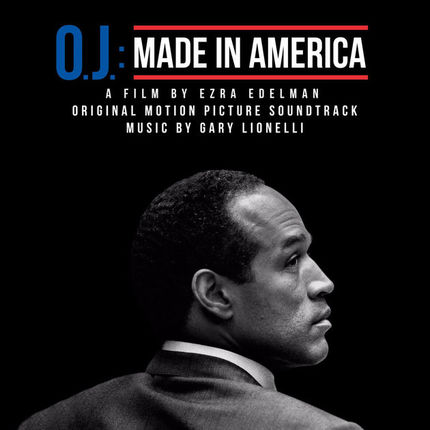EMMY WATCH: Composer Gary Lionelli On His Score to ESPN’s “O.J.: Made in America”

It can be said that composer Gary Lionelli is a musical genius when it comes to documentary scores. Having worked on over 30 documentary projects to date, one of them being this year’s Academy Award winning O.J.: Made in America, along with taking home three Emmy awards, Lionelli has definitely made a mark on the genre. One way he has done this is by successfully amplifying each of his subjects emotionally, creating a relatability with them and the audience. We decided to speak with Lionelli about everything from how he got involved with O.J. to why he thinks there is still an interest in this story 20 years after the events occurred. Read the full interview here.
-How did you initially become involved with O.J.: Made in America?
I got a call from director Ezra Edelman. I’d worked with Ezra on a few other occasions on some HBO films. At first I wondered what more there could be to say about the topic, but I soon saw that the entire film was so much more than a regurgitation of the facts of the O.J. Simpson case. This film was going where no film on this subject had gone before, and from a very broad and detailed historical perspective. I knew then that I had to echo this long overview musically, and given a project of this scale, that was an exciting prospect.
-What was one of the first things you did when beginning work on O.J.: Made in America?
Get organized! And map out a schedule. I’d never done a project of this length—7 ½ hours, so I had to get the orchestra lined up, and pick up some new instruments and equipment along the way, too.
-How would you describe your score for this project?
The score was a blend of many different elements. I used a large string section and a set group of soloists for many of the cues—oboe, clarinet, cello, and trumpet. I also used my always expanding collection of acoustic instruments — vibes, marimba, toy piano, hang drum, guitar-viol, magic wand, and on and on. Musically speaking, some cues had a slight introspective, desolate jazz feel. Others had a more of a postmodern style and were done completely electronically, mostly with sound manipulation and effects processing. And some were a mix of these two elements.
-Are you surprised at all with how much interest both O.J.: Made in America and Ryan Murphy’s show have gotten, almost 20 years after the events occurred?
Yes. It was impossible to predict whether there would be a lot of interest, given that most people thought they knew all there was to know, or wanted to know, about O.J. Simpson. But I think enough time had gone by to provide a deeper historical perspective, and the film connected the dots in way that cast the sequence of events in a new and fresh light, with much more clarity than there had been at the time. The People v. O.J. Simpson was excellent, too -- it left viewers wanting more and perhaps being more curious to hear from the real people who were there and involved at the time.
-Your O.J.: Made in America soundtrack was released a few months ago. Do you have a favorite track on the album?
I’d probably have to pick the first track, which besides being a cue in the film also serves as the end title music. Jeff Bunnell was fantastic on trumpet, playing in a very lyrical, introspective, and detached style. This cue also contains piano, vibes, and the string orchestra. I think this piece had the effect of acting as a forewarning of O.J.’s ultimate fall from his once great heights, and of the melancholy and sadness for the loss of both Nicole Brown Simpson and Ron Goldman.
-What was the biggest challenge you had with creating this score?
The biggest challenge with this project was working to an almost impossible deadline. Because the film was seven and a half hours long, I knew I would have to write at least six hours of music. I was originally given a little over three months, but I managed to get the deadline extended to within ten days of the theatrical debut, which gave me just over five months. And I had to set aside time to record and mix the orchestra, too, so it was an extremely tight schedule.
-You have scored many documentaries. What do you think set this one apart from all the others this year enough to win the coveted Oscar?
Ultimately, the film was a treatise on how America got to the point where the events around the trial of the century were completely explainable. Ezra Edelman is a brilliant filmmaker, and he was able to tell the story not only with unprecedented detail, but in a way that captured and held the attention of the viewer throughout the entire seven and a half hours. He framed the story in the context of the racism so entrenched in America and within the LAPD itself. So many people told me that when they started to watch the film, they had intended to watch perhaps only Part 1, but without exception they all ended up binge-watching the entire thing. And everyone who saw it came away with a far greater understanding of something they thought they knew everything about.
The soundtrack for the film is now available here.






